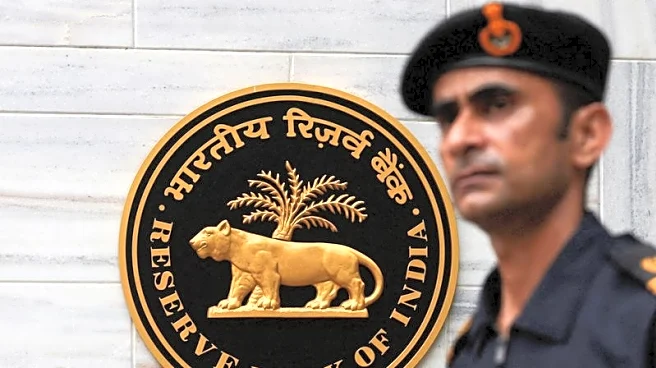What's Happening?
New Jersey has officially banned sweepstakes casinos with the signing of Assembly Bill 5447 by Governor Phil Murphy. This legislation closes a loophole that allowed these casinos to operate using a dual-currency system, which includes free-play 'Gold Coins' and redeemable 'Sweeps Coins'. The law categorizes these operations as illegal gambling, imposing fines of up to $100,000 for first-time violations and up to $250,000 for repeat offenders. The Division of Consumer Affairs and the Division of Gaming Enforcement are tasked with enforcing the ban, which aims to eliminate ambiguity in state law and protect consumers from unlicensed operators. New Jersey joins Connecticut, Montana, Nevada, New York, and Louisiana in taking action against sweepstakes casinos this year.
Why It's Important?
The ban on sweepstakes casinos in New Jersey is significant as it reflects a growing trend among U.S. states to regulate gambling more strictly. By prohibiting these operations, New Jersey aims to protect consumers and ensure that gambling activities are conducted within a regulated framework. This move could impact the sweepstakes industry, which has been criticized for operating under a model that resembles unlicensed gambling. The legislation also highlights the state's commitment to maintaining a clear distinction between regulated online casinos and sweepstakes operations, potentially influencing other states to adopt similar measures.
What's Next?
With the enforcement powers now clearly defined, New Jersey regulators are expected to take swift action against any operators still offering sweepstakes-style gambling. The state's decision may encourage other states, such as California, to consider similar legislation. The sweepstakes industry, however, is likely to continue its pushback against these bans, arguing that they undermine innovation and ignore data. As more states evaluate their stance on sweepstakes casinos, the debate over their legality and regulation is expected to persist.
Beyond the Headlines
The ban on sweepstakes casinos in New Jersey raises broader questions about the regulation of gambling and the balance between consumer protection and industry innovation. The legislation could lead to long-term shifts in how states approach gambling regulation, potentially setting a precedent for stricter oversight and enforcement. Additionally, the move may influence the development of new gaming models that comply with state laws while offering innovative experiences to consumers.










